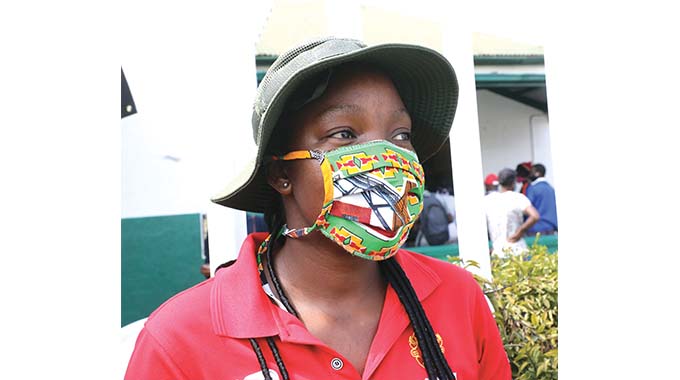Residents make ends meet through selling chickens

Nqobile Tshili, Chronicle Reporter
AN increasing number of Bulawayo residents are resorting to backyard poultry projects as a budget beating measure.
While long queues have become synonymous with banks or Zupco buses, there is an increasing number of people queuing to buy day-old chicks at poultry shops in Bulawayo.
An increasing number of people are selling chickens at their homes and some market the birds on online platforms such as WhatsApp.
A Chronicle news crew yesterday spoke to some of the enterprising residents and they revealed that the project is highly profitable.
Mr Brighton Mabuya from Kensington suburb said he has been involved in the poultry project for at least two years.
He says although he started very small, his business has grown to the extent that he now keeps 1 500 birds in his backyard fowl run.
“The reason I do this is mainly for money, just like most people. There are no jobs and this has become my source of livelihood. I sell my chickens for US$5 but when clients make bigger orders, I give them discounts,” said Mr Mabuya.
He said he does not see the increase in the number of people involved in the same project as a threat to his business.
“The good thing about selling food is that people need to eat every day. So, whether my neighbour is selling chickens as well, this is unlikely to affect me. This is unlike selling clothes where one can have a single pair for a year. Secondly, chickens usually do not mature at the same time. My batch can mature this week and my neighbour’s matures weeks after so that makes it easy to sell the chickens.”
He declined to comment on his profits saying he does not want to attract thieves, as he has already fallen victims to some people who steal his stock.
A pensioner, Mr Ambrose Muchenje, who resides in Cement Siding said he recently took a retirement package and believes he could retain his pension’s value through a poultry project.

Mr Ambrose Muchenje
“This is my first time coming to buy chicks here. I’m using the knowledge I got from the company’s union which taught us about ways to retain the value of our money as opposed to keeping it as it is and it loses value,” said Mr Muchenje.
Another resident, Mrs Tholiwe Khumalo, said her project was highly profitable as she sells chickens both in Bulawayo and Tsholotsho.

Mrs Tholiwe Khumalo
“I sell most of my chickens in Tsholotsho where I run a business. But I also bring the chickens here to Nkulumane to sell. I’m also in the coffin selling business but poultry seems to be more profitable and unlike most people who sell chickens for R100, I sell mine for R80 and make good profits,” said Mrs Khumalo.
Mr Joel Masuku from Emganwini suburb said he was rearing chickens to improve his home budget.
“Most people sell their chickens in foreign currency which is very expensive as opposed to just rearing chickens to eat at home. If I buy 25 chicks, we can keep at least 10 at home and sell 15 to our neighbours and our neighbours do the same. We become more of a syndicate. So, I buy chicks maybe once in six months and it’s really viable and cheap,” said Mr Masuku.
His sentiments were echoed by Ms Nyaradzo Bethani who said she saves a lot of money through rearing chicks as opposed to buying from other people.
Mrs Stella Sithole from Pumula South said she used to run a pre-school before the indefinite closure of schools affected her business.
She said she has turned to chicken rearing as an alternative means of making an income.
“I’m new to poultry farming. I have been forced to it by the lockdown that has seen schools remaining closed since March. I used to run a pre-school in Pumula South so, with schools still being closed I’m just trying out on the poultry project, hopefully it is going to pay,” she said.
Bulawayo City Council director of health services Dr Edwin Sibanda said the city’s by-laws govern the rearing of chickens in the city.
He said he could not immediately spell out the number of chickens that backyard poultry farmers can keep as he was out of office.
Mr Sibanda said due to noise pollution, it was illegal for residents to keep roosters in the city.
“The implications of this is usually nuisances likes smells and flies while some of them it might be noisy. I wanted to check the by-laws because you don’t just keep chickens because you are allowed but you first let us know so that we monitor these things and we are able to make sure that it is not out of control. The issue of flies can go with transmission of diseases and smells are a nuisance just like noise. That is why we don’t want roosters in the city, we don’t allow people to keep roosters in the city,” he said.
Mr Sibanda said slaughtering of chickens is not encouraged at home as it increases illegal dumping activities which breed flies and smelly environments.
“Slaughtering has been a challenge, we have abattoirs but people with small stocks may find it uneconomic to go to an abattoir, hence they are slaughtering in their backyards. This has also increased smells and flies, we know that offals of chickens have a foul smell. We also may not be clear of how they dispose feathers and related stuff that may increase illegal dumping around the city. The correct thing is to take the waste to a landfill and pay the requisite fees. But it is those people with small stocks who may not do it but those with larger stocks take them to abattoirs and the abattoirs are inspected regularly,” said Mr Sibanda. — @nqotshili












Comments